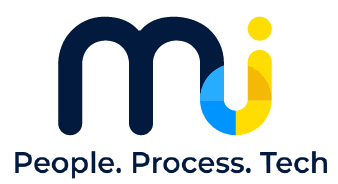Being the owner of any business be it small, non-tech, or a startup, means you’re constantly striving to adapt to new technologies or keeping up with market trends, a robust social media reach, and other related marketing strategies. You do all this to ensure you offer unique products/services to your customer base while remaining relevant in a highly competitive marketplace. But have you carried out a key performance indicator (KPI) digital assessment?
What Does A Digital Assessment Entail and Why Does My Business Need One?
Various metrics need monitoring to get valuable insights into your online performance. Whether you’re seeking a complete online presence or looking to scale your start-up, a digital assessment provides a measurable outlook of the overall well-being of your business. Most businesses fail to track their performance due to lack of proper KPIs or the know-how to accurately monitor them.
Quantifying a company’s current performance by carrying out a digital assessment at least every six months is the best way to determine if a company is meeting its projected goals for growth. For example, evaluating the performance of returning customers to your site tells you how well you’re doing on the customer satisfaction and brand trust front.
Note that most data collated during a digital assessments requires in-depth interpretation and continuous measurement. It’s, therefore, advisable to leverage the expertise of a company that solely focuses on providing technology and digital marketing solutions for growth entrepreneurs.
Which Metrics Will A Digital Assessment Evaluate?
Although there are numerous metrics you can track, a comprehensive digital assessments concentrates on the following areas to measure the effectiveness of your business marketing strategies.
Conversion Rate: It measures your success at converting potential customers (leads) into buyers. To get an accurate read of what’s happening in your online store, it’s best to take a funnel-based view of a buyer’s shopping journey. This is right from when a customer looks at the product pages to the shopping cart and checkout process. Doing so reveals to you where to focus your conversion rate optimization efforts.
Social Media Engagement: if you’re a direct-to-consumer business without a brick-and-mortar presence, social media engagement is a critical marketing metric to assess. As a significant source of referral website traffic, the success of your social media click-through rate, conversions, and referrals demonstrates that your content resonates with your audience.
Customer Lifetime Value (CLV) and User Experience (UX): a customer lifetime value calculation looks at the revenue clients generate through engaging with your business. A positive CLV outcome is contingent on, among other things, superior website functionality aiming at speed, mobile-ready, seamless navigation, and relevant content.
Email Marketing Campaigns: evaluating email marketing metrics such as open rate, click-through rate, including unsubscribes, conversions, social shares, and bounce rates can improve campaign ROI.
Content Marketing ROI: your success in creating awareness and educating your target audiences is reflected in your site’s keyword rankings, traffic source/medium, and user engagement. It’s equally important to assess data pulled from lead generation analysis, impressions and CTR, social shares, and backlink metrics.
Paid Outreach: the top three paid outreach metrics to monitor, include audience engagement, conversions from prospects to leads, and the average engagement time on your site from your outreach campaign.
Competitor Performance: you can discover new market tactics, learn to leverage trends, uncover gaps in the marketplace, and even collect leads with competitor research and monitoring. The main metrics you should measure consist of competitor keyword ranking, social media mentions, backlink acquisition, on-page SEO, website performance, customer feedback, and PPC advertising.
Not sure which metrics form key performance indicators for your business model, marketing strategies, and long-term business objectives? Get in touch with our teams at MI Group. We have created a Digital Hub that performs a preliminary assessment via a free Snapshot Report worth $499 for online businesses to see how they measure up with their competition and digital presence. Visit our website to generate your free comprehensive report.


